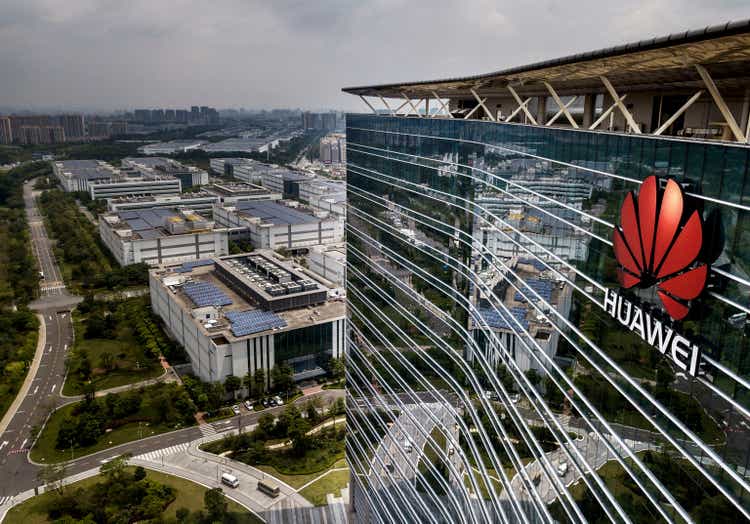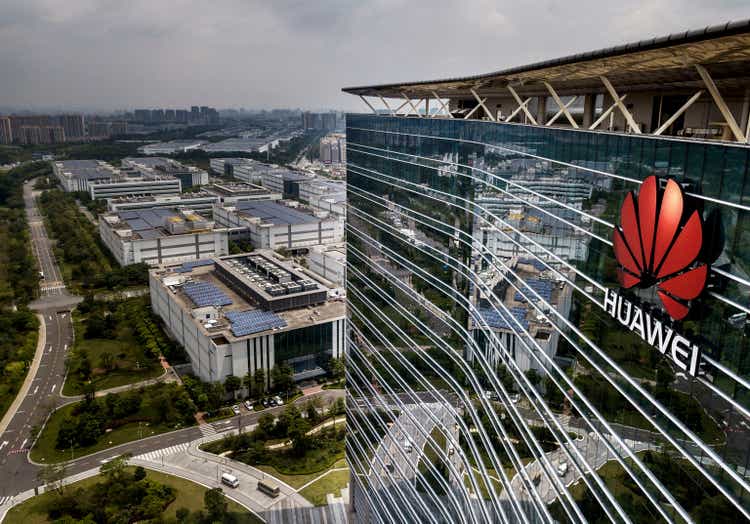
Kevin Frayer
Huawei Technologies’ unit HiSilicon is shipping new Chinese-made chips for surveillance cameras, a new sign that the company is finding ways around U.S. export restrictions imposed in 2019, Reuters reported citing people with knowledge of the matter.
Chip design unit, HiSilicon’s consignment to surveillance camera producers started this year and that at least some of the customers were Chinese, the report added.
“These surveillance chips are relatively easy to manufacture compared to smartphone processors,” said a source with the knowledge of the surveillance camera industry’s supply chain, noting that HiSilicon’s return would shake up the market.
At the end of August, Huawei surprised many by quietly launching its new phone, Mate 60 Pro. The company did not provide information on the power of the chip inside but people speculated that it could be using a 5G capable chip. The Chinese tech giant once was in race with Apple (NASDAQ:AAPL) and Samsung (OTCPK:SSNLF) to be the world’s biggest handset maker until U.S. restrictions, starting in 2019, began to curb its access to chip manufacturing tools needed for producing its most advanced models.
The semiconductor has been made using a 7-nanometer process by Semiconductor Manufacturing International (OTCQX:SIUIF), a CNBC report had noted citing an analysis of Mate 60 Pro conducted by software company TechInsights. The chip has ignited concerns in the U.S. and raised questions about how it was possible, without the company being able to access critical technologies.
On Tuesday, it was reported that Huawei could launch a 5G version of its mid-ranged phone Nova around October or November.
In March, Huawei noted that it had made breakthroughs in design tools for chips manufactured at and above 14 nanometres – two to three generations behind leading-edge technology, but an advance for the company, the Reuters report added.
Before the U.S. export restrictions, HiSilicon was a major chip supplier to the surveillance camera sector, with brokerage Southwest Securities estimating the company’s global share in 2018 at 60%. However, by 2021, HiSilicon’s global market share slumped to 3.9%, according to data from consulting firm Frost & Sullivan.
HiSilicon primarily supplies chips for Huawei equipment, however it has had external customers such as Dahua Technology and Hikvision.
HiSilicon has shipped some low-end surveillance chips since 2019, however its focus was on the high-end arena and getting back market share from companies such as Taiwan’s Novatek Microelectronics, according to the report.
According to some analysts, Huawei’s resurgence could be the biggest challenge for Apple in China where the company is already facing several issues plus mounting geopolitical risk.








